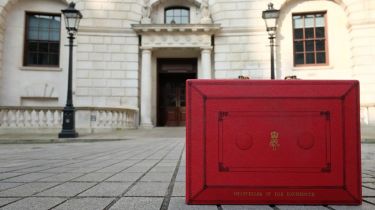Spring statement 2025: no extra pain for motorists on top of April tax rises
Rachel Reeves’ spring statement avoids any new tax or spending measures as drivers confront tax hikes.

Chancellor Rachel Reeves hasn’t chosen to increase the burden on drivers in her annual spring statement, and has instead stuck to her previously announced policy of a single ‘tax and spend’ event annually - meaning drivers are safe at least until the autumn Budget.
But while nothing new was announced in the House of Commons as Reeves gave the government’s response to the latest economic forecasts by the Office of Budget Responsibility, drivers are confronting significant rises in their road tax bills as part of the package of announcements made in the recent autumn budget, that are only now coming into force.
VED (road tax) changes
As per Reeves’ announcement in last year’s autumn Budget, VED (also known as road tax) is set to rise this April from £190 annually to £195 – the first-year VED rate will also rise for the lowest-emission cars, because the bottom tax bracket has been scrapped.
Most notable, however, is that electric cars are now no longer exempt from road tax and, given many cost more than £40,000, there will now be a lot more EV drivers paying the annual expensive car tax supplement, which sits at £425 per year from April. Adding insult to injury for economy-minded motorists, hybrid and mild-hybrid cars will also no longer qualify for the £10 discount in yearly road tax.
Fuel duty freeze
In October, the government announced that it would extend the ongoing freeze to fuel duty, as well as the temporary five pence cut, until March 2026 – despite many rumours suggesting the contrary. However, there is nothing to say that Labour won’t unfreeze duty and remove the cut in the next autumn Budget. At around the same time, the government is set to (finally) launch its Fuel Finder app, allowing drivers to compare live fuel pricing in order to make an informed decision on where to fill up.
ZEV mandate consultation
In her spring statement Reeves chose not to address the controversial ZEV Mandate and Labour’s manifesto pledge to bring forward the ban on sales of new internal combustion-engined cars from 2035 to 2030. However, we expect the government to publish its review imminently, into a policy which has seen manufacturers shell out billions of pounds in order to shift expensive electric cars to buyers and thus avoid tough fines.
Nothing specific has been said on what’s going to be announced, but Ford UK’s CEO Lisa Brankin told Auto Express that the firm has had “really good engagement” with the government over the mandate.
The Society of Motor Manufacturers and Traders (SMMT) has called for government incentives for private buyers purchasing new EVs and a cut to VAT on public charging (to more closely match the price of domestic electricity), among other things.
Support for UK automotive manufacturing not the focus
Before the statement there had been speculation around whether the government might announce any measures to support the nation’s car manufacturing industry. This has taken huge hits of late after Stellantis, owner of Vauxhall, pulled the plug on its site in Luton, and with other firms threatening to pull out of the UK, the government could have decided to offer greater support.
However, remarks made by Reeves emphasised just how the focus of investment has swivelled towards defence following the arrival of a new Trump administration in the US, and the auto industry didn’t get a mention.
Check the tax status of any car with out free car tax checker tool...









